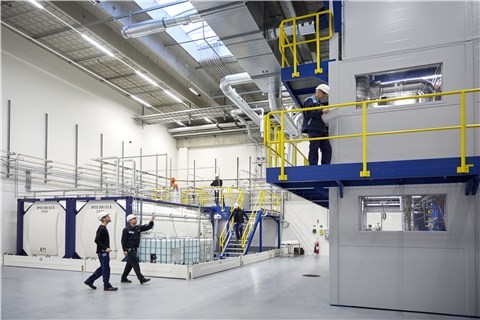Braskem and Haldor Topsoe commission their bio-MEG demo plant
Type of post: NEWS IN BRIEF.
In 2017, Braskem and Haldor Topsoe announced
having entered in a new partnership to develop a pioneering route to produce
monoethylene glycol (MEG) from renewable resources. Last week, the partners
reported the commissioning of the unit to demonstrate the process in Lyngby (Denmark).
The operation of the plant marks a decisive step in confirming the technical
and economic feasibility of producing renewable MEG on an industrial scale by
this route.
Press release: “Braskem
and Haldor Topsoe startup demo unit for developing renewable MEG”,
6/2/2019.
Figure 1. New bio-MEG demo plant in Lyngby (extracted
from the press release)
MOnoSAccharide IndustrIal Cracker (MOSAIK™), a process
developed by Haldor Topsoe, is the basis of the new demonstration plant (see
more information about the process and the facility following the link to the
related post below). The unit has an annual production capacity of hundreds of
tons of glycolaldehyde, a MEG precursor. Various raw materials (sucrose,
dextrose and second-generation sugars) will be validated at the plant. Starting
in 2020, clients will be able to receive samples to test in their products.
Related post: “Braskem
and Haldor Topsoe to validate new bio-MEG production process in a demo plant”,
13/11/2017.
MEG is predominantly used in the manufacture of PET
resins, films and fibers. The global MEG market represents a value of approximately
25 billion dollars. The success of this pathway to produce renewable MEG could
entail a major advance in competitiveness for green PET. Braskem aims to
broaden its I'm greenTM portfolio, which already features green polyethylene
and green EVA (ethylene vinyl acetate), both made from sugarcane.





